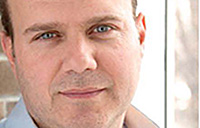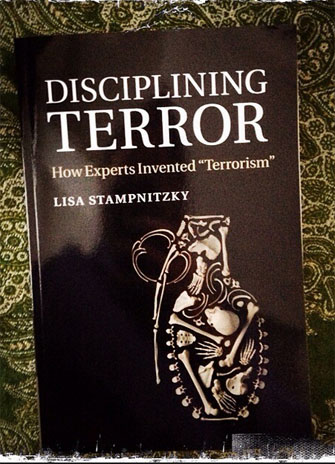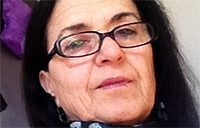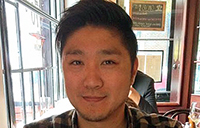Students in Toronto and India are taking cross-cultural learning to new distances.

The Department of Sociology at York University and the Department of Sociology and the Centre of Excellence for Communication and Media Studies at Jamia Millia Islamia University (JMIU) in New Delhi, India, are partnering to offer a unique course experience to undergraduate students.
The partnership offers undergraduate students at York and first-year master’s students at Jamia the opportunity to virtually connect in the study of sociology. This occurs through York and Jamia’s technological capabilities that allow students at both campuses to learn from each other at the same time, despite being approximately 11,625 kilometres apart. This course is an example of the positive use of advanced technology for higher education.

Students at York and Jamia first met on Jan. 19 via teleconferencing in Stedman Lecture Hall to jointly participate in the fourth-year sociology seminar course, SOCI 4215 Capitalism, Ideology, and Social Theory. The course is taught by York’s Sociology Professor Hira Singh in coordination with JMIU Professor Manoj Kumar Jena. The course was also made possible by the active involvement and cooperation of Sociology Professor Nancy Mandell at York and Professor Biswajit Das at the Centre of Excellence for Communication and Media Studies, JMIU. York staffers Amber Gazso, Larry Lam and Zuzana Chovancova worked to ensure that the course meets its primary objective as mandated by York University.
“From social theory perspective, the course highlights the interconnectedness of societies across continents, an antidote to commonplace tendency in mainstream sociology to focus on studying a particular society, culture, or nation as essentially bounded and closed units,” said Singh. “Personally, it is immensely gratifying for me to connect with two academic cultures — Indian and Canadian — one I grew up and was socialized in and the other I had to learn after migrating to Canada.”
The course is designed for students to explore the applicability of sociological theory – classical and contemporary – to the social issues of modernity, particularly in relation to inequality, exploitation and democratic rights of subaltern groups globally. It also deals with the question of whether sociology fulfills or betrays “the promise” outlined by C. Wright Mills, in terms of explaining or mystifying the broader systemic factors affecting the lives of individuals in modern times cross-culturally.
Jamia’s students offer York students an Indian perspective and York’s students provide the Canadian point-of-view.
There is “an understanding of what is common and what is specific to each society in order to promote the commonsense that we inhabit one world, which should not be obliterated by a vision of particularities of ethnicity, religion, culture, and nation. Our loyalty to the latter should not and cannot be pursued at the cost of the former,” Singh said.
“The York-Jamia collaborative course has been of a great interest, both in terms of the way it is conducted and the readings that are covered,” said Jamia student Swarnpreet Kaur Tuli. “The format of the teaching is novel.”
Testimonials from both York and Jamia students attest to the importance of learning course material of global implications in a technology-mediated cross-cultural environment.
York student Arlene Jack said, “Communicating with international students in a classroom environment has afforded not only myself, but all the participants the possibility of exchanging experiences and ideas. Thus far, my perspective has not only broadened, but through honest dialogue with students at JMI university, many preconceived notions that I had about the international community have since been altered.”
The initiative has received accolades from faculty in the Department of Sociology for its focus on undergraduate students and the spirit of collegiality between the universities that brought this initiative to fruition. Faculty members in the Department of Sociology believe this initiative will lead to more collaborative possibilities between York and other institutions abroad in the near future, leading towards the department’s goal to internationalize sociology.
“My upbringing, academic training and professional experience of two cultures is an asset — which many other faculty at York have in common — the university and particular departments can use to promote internationalization,” Singh said.
For more information regarding the course, contact the Department of Sociology at 416-736-5015 or sociology@yorku.ca.














 Stampnitzky examines how political violence became terrorism and how this transformation ultimately led to the current war on terror. Drawing upon archival research and interviews with terrorism experts, she will trace the political and academic struggles through which experts made terrorism, and terrorism made experts.
Stampnitzky examines how political violence became terrorism and how this transformation ultimately led to the current war on terror. Drawing upon archival research and interviews with terrorism experts, she will trace the political and academic struggles through which experts made terrorism, and terrorism made experts.






